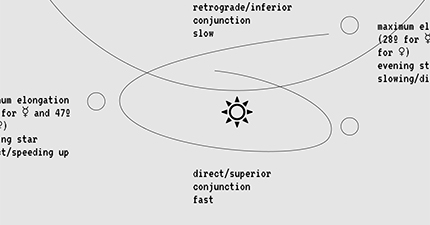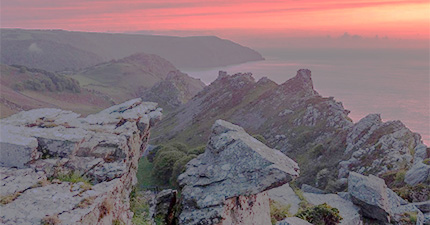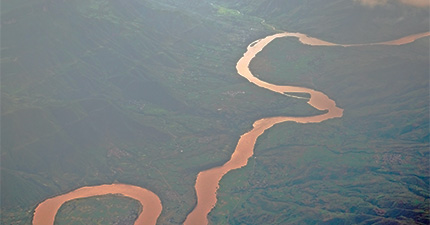Ji Earth is the sixth of the ten Heavenly Stems in Chinese style fortune telling. What are the Heavenly Stems and what do they show us? They don’t give any information about life or our circumstances—instead, they show us our ideas. Ji Earth is the sixth archetype in Chinese cosmology. It is the nurturer and the thinker. If you want to check to see if Ji Earth represents your personality in Chinese astrology, find a bazi chart calculator and look for your day stem. Your day stem is the anchor of your day and represents your personality.
(I titled this article “day master” because the day stem of your chart is often translated as “day master” and this is the most common search term related to the concept. However, you can call your day stem your day destiny, your chart ruler, or simply your day stem.)
Ji Earth is the thinker. Why is yin earth, representing soil, the thinker?
In modernity, dirt is viewed judgmentally. We say that someone is dirty when we want to call them low, base, or nasty. We tell people to wash the dirt off. In East Asia, the word dirt was used in a derogatory way by Japanese settlers to speak about indigenous people which is why, in modern East Asia, the word for dirt is still often seen in racial slurs. In western culture, dirt is associated with shame and sin.
But yin earth, which is dirt, is one of the ten archetypes of Chinese cosmology. What is the difference between yin earth and yang earth—between hidden earth and apparent earth? How can earth be hidden or apparent?
The character for Ji Earth, 己, is a picture of folded earth. This is the soil. Folded earth can be used as a container, as a clay bowl used to carry water and food. Folded earth can hold a seed, nurturing the foundation of life. Folded earth can be a history book. We bury treasures and records inside of the soil.
己 is more than just an image of folded earth. The character actually means “the self” and represents the folded brain. Just like soil, our brains are complex because they contain so many folds that hide things. Our minds are complex because we can hide thoughts inside of them.
Don’t look down on the soil. Ji Earth is a complex personality. This is the thinker archetype. Ji Earth people aren’t showy. They aren’t meant to be. Do you want a psychologist to be showy? You want them to be probing, to be investigative, and to tolerate mystery. Ji Earth does all three.
Ji Earth people are always thinking. Sometimes, they worry. They’re just thinking. They think about everything. They hold an idea like a seed inside their minds and they grow that idea for years and years. If the soil wants to grow anything, it has to just stay put. Ji Earth has all of these complicated ideas that grow more and more complex like the networks that form under the soil. To allow that kind of inner growth, Ji Earth people use their exceeding patience.
The soil is like a history book. You find things in it—ancient rice, bones, arrows, and pottery. Soil is such a good preserver of history, we can find things that are thousands of years old by digging. That’s the energy of Ji Earth. It holds onto things. It remembers. It also loves to dig into the past. Ji Earth people are researchers. They almost never take anything at face value. They dig into the past, find all of the details that give what they are dealing with context, and they use that context to give the current moment dimension.
You probably won’t be surprised to find that both Carl Jung and Sigmund Freud are Ji Earth day master people. Both of them also have rooted Ji Earth day pillars, making their Ji Earth personality very strong. Both Carl Jung and Sigmund Freud are Ji Chou or Earth Ox day pillars.
These people are not opening up the head and studying the brain by cutting it up. That would be studying the brain from the outside. These people are studying the mind from the inside. They are studying fantasy, trauma, consciousness, and unconsciousness. They are mapping not just the mind but the soul. Why do we dream? How do dreams work? What do we know about what we don’t know?
Ji Earth isn’t just small earth—soil. It can also be a cave. That’s another form of folded earth or hidden earth. Wu Earth, apparent earth, is a mountain and Ji Earth, hidden earth, is a cave.
Ji Earth people aren’t trying to make everything known. They share just enough to nurture but they always keep half of what they say private. You have to stick with them and learn how to read them well to understand what makes them tick. They don’t say much at all at once. They wait for you to catch up and then they share a little more.
But Ji Earth people won’t store secrets forever. They are straightforward and honest. They just don’t overshare. Soil can be read. Red soil means that minerals are present. Dark soil contains many nutrients. Light soil is close to water. Not all Ji Earth is the same—Ji Earth absorbs and moderates what it comes into contact with.
All yin stems are more resilient than yang stems. Wu Earth is a mountain and it can drop off like a cliff. Wu Earth people tend to be reliable and straightforward but they can remain too loyal and get stuck. Ji Earth does not. Ji Earth can blow around like the sand or it can become balls of sturdy clay. What it becomes just depends on who it is around.
Ji Earth isn’t easily affected or thrown off. It can hang out with Wood people, with Fire people, and with Water people. It can hang out with Metal people. In fact, Ji Earth actually needs a little bit from every type of person in order to nurture new life. Ji Earth can be a social sampler. They take a little bit from everyone’s perspective and they find a way to bring it all together.
Ji Earth isn’t as stubborn as Wu Earth, the immovable mountain. It’s not as concerned with loyalty. Loyalty isn’t the virtue that Ji Earth is here to focus on. This is an investigator that we are talking about. You don’t expect a private detective to agree with the initial notions that their clients come to them with. You expect a result from that investigation—for the investigation to produce something that changes everyone’s perspectives. Freud wasn’t loyal to his clients or his patients—he was too interested in probing all of the many perspectives around him.
If you have a Ji Earth friend, then that friend will never spill your secrets. They will listen to you without conjecturing. They’re trying to get to know all of the intricacies of how you think. They take a lot of time to listen. Slowly, they start to ask questions. With that slowness, you start to understand the core of who you are.
That’s Ji Earth. It’s not enough to say that, as yin earth, it’s flexible enough to nurture any idea. It is but it’s also more than that. Ji Earth isn’t just flexible for flexibility’s sake. It’s actually not that flexible because it likes to stick with one thing. Ji Earth represents deep digging. It represents the type of slow truth seeking that flips the foundation of who we think we are. That’s the soil working as psychologist.
1 of 19
>>>


